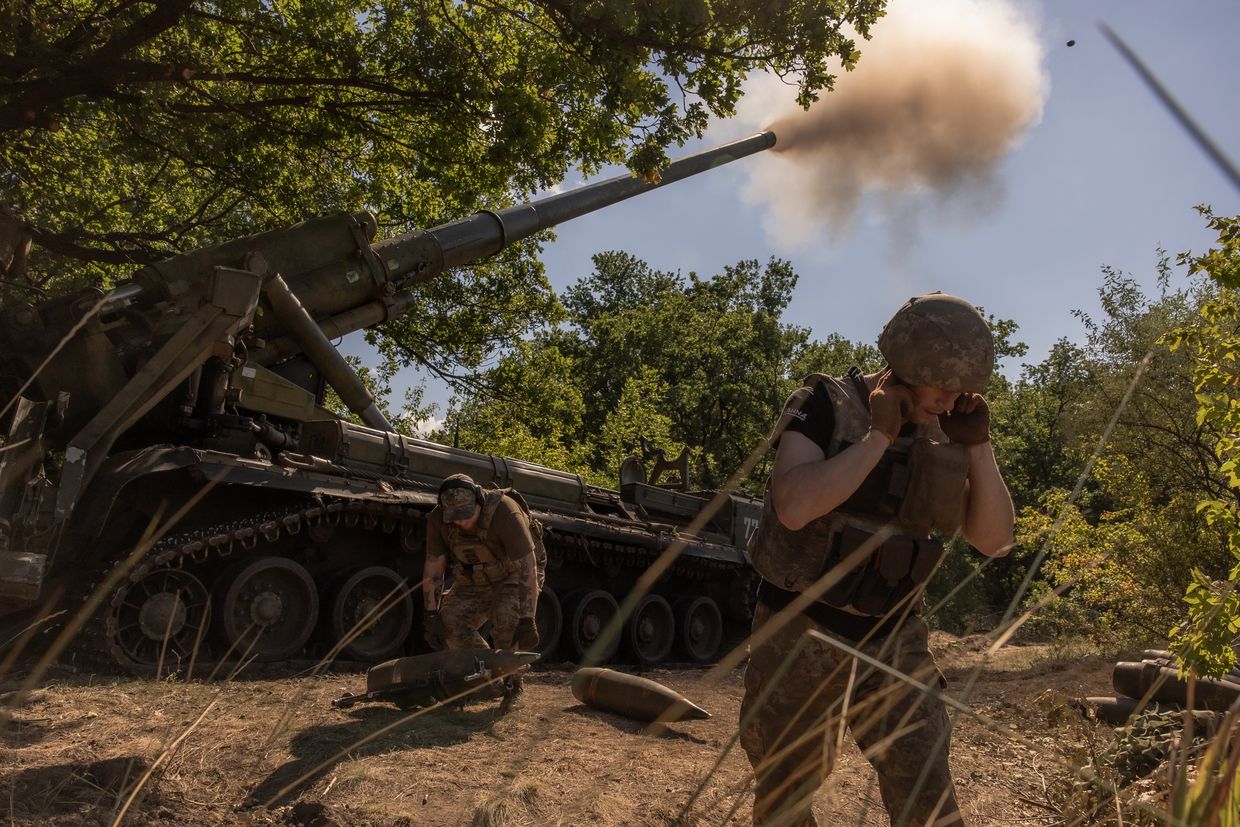CIA chief: Russian elite left questioning war after Kursk incursion.
Ukraine's incursion into Russia's Kursk Oblast has rattled Russia's elite but Russian President Vladimir Putin still has a tight grip on the country, said CIA Director William Burns at the Financial Times' Weekend festival in London on Sept.
7. Speaking alongside MI6 Head Richard Moore, Burns said that the incursion, launched on Aug.
6, was "a significant tactical achievement," boosting morale in Ukraine as well as unveiling Russia's weakness. Notably, it has raised difficult questions for Russia's rich and powerful about "where this is all headed," he said.
However, both Burns and Moore agree that the incursion may not have loosened Putin's grip. But Moore told the audience not to "confuse a tight grip on power with a stable grip," pointing out that Kursk has brought the war to the doorstep of "ordinary Russians." The MI6 chief also said it's "too early" to tell how long Ukraine can sustain control over the territory in Kursk Oblast.
Ukrainian officials and political analysts have noted that the incursion boosts Kyiv's leverage in potential peace talks. "Is the Kursk operation connected to the second peace summit? Yes, it is.
Because the Kursk operation is one of the points of Ukraine's victory plan," President Volodymyr Zelensky said on Aug.
27. Regarding Putin's nuclear threats, both said the West should not take the warnings lightly but should also not be needlessly intimated. Burns said that Putin will "continue saber-rattling from time to time."
Putin warned in July that Russia would deploy short and intermediate-range nuclear-capable missiles if American missile systems capable of striking Russian territory were deployed in Germany. Recent media reports claim that Iran sent hundreds of Fath-360 short-range missiles to Russia. Experts told the Kyiv Independent that these tactical missiles are most likely to be employed at the front line. Burns suggested that Russia has not yet used Iranian short-range ballistic missiles on Ukraine.
However, added that an Iranian shipment would signify "a dramatic escalation." Ukraine's Foreign Ministry said on Sept.
7 that if Iran provides ballistic missiles to Russia, "it will have devastating consequences for Ukrainian-Iranian bilateral relations." "The deepening military-technical cooperation between Russia and Iran poses a serious security threat not only to Ukraine but also to the whole of Europe, the Middle East, and the world," the Foreign Ministry commented.
Russian offensive near Pokrovsk slowing down, media reports
Citing data from defense analysts, Agentstvo backed Ukraine's Commander-in-Chief Oleksandr Syrskyi's recent claims that Moscow's push near the key town is losing steam.
